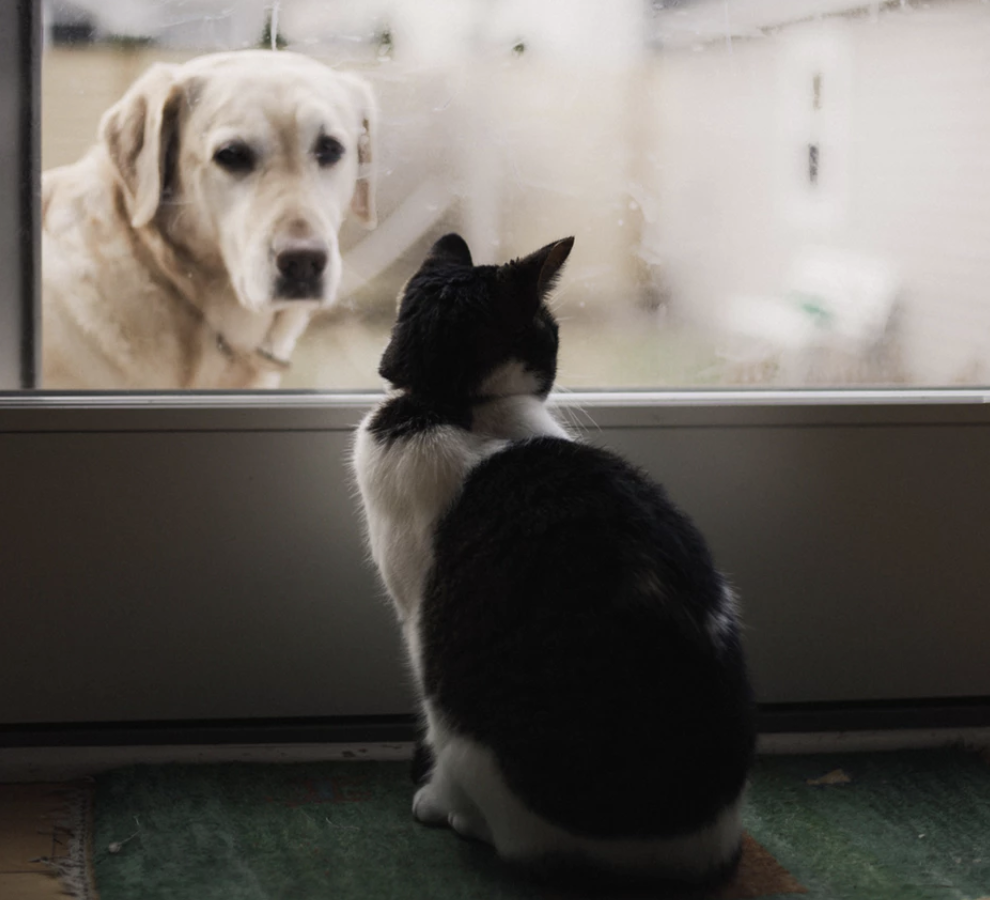Part III: Breaking the Cycle

UNDERSTANDING THE CONNECTION BETWEEN VIOLENCE TOWARDS ANIMALS AND VIOLENCE TOWARDS PEOPLE
This guest blog was written originally for the SPCA of Texas by Marlo Clingman. It is part of a series; Part I can be found here. Part II can be found here.
WARNING: In this series of posts, the SPCA of Texas addresses some deeply serious issues surrounding the connection between violence towards animals and violence towards people. Some of the graphic information below may be disturbing to some readers.
In the North Texas town where David and Louise Turpin imprisoned and abused 8 of their 13 children prior to moving to California, their neighbors were suspicious that the Turpin children’s odd behavior was the result of child abuse. A sheriff was called out to the property when a dog bit a child, but neither the Turpin’s neighbors nor the Rio Vista authorities reported signs of animal abuse. After the Turpin family relocated, neighbors found deceased cats and dogs in the home as well as two dogs that managed to survive by eating garbage.
The National Link Coalition states, based on research and evidence, that “The presence of animal abuse in the home greatly increases the risk of adults and children being bitten or attacked by pets.” Law enforcement agents who are trained in the LINK will be better equipped to recognize when an animal bite could potentially be the result of animal abuse or other forms of abuse. More obvious signs of animal neglect and abuse should be cause for immediate inquiry into the welfare of any children, disabled individuals or elderly family members in the home.
“It is common sense that if a person keeps a dog chained up outside without proper food, water and/or shelter and allows the dog to live with chronic neglect, then they are more likely to allow their children to be neglected.”
Educating community members about why animal abuse is often the tip of the iceberg of violence in a home is also equally important. According to the National LINK Coalition, “a child’s cruelty to animals may be an indicator that the child has suffered serious neglect or abuse, and may lead to an increased likelihood of other violent behaviors in childhood and adulthood.” While not every child who lashes out violently towards animals is suffering abuse or will end up committing crimes against humans, the probability of either situation is significant.
“A 10-year study of at-risk children showed that those who were classified at age 6-12 as cruel to animals were more than twice as likely as others in the study to be subsequently referred to juvenile authorities for a violent offense. Of those reported to be both cruel to animals and fire setters, 83% had later involvement in violent offenses.”
By educating community members about the link and providing them with resources for reporting potential signs of human or animal abuse, law enforcement and social services will be able to respond to more cases before the violence escalates. Swift response and significant sentences for animal abuse may prevent the abuser’s probable next target, a human, from suffering violence. Through education, training and communication, the north Texas community can become a safer place for both animals and people.
To learn more about the LINK, please visit the North Texas LINK Coalition website. To learn about how to lobby your local representatives to pass humane legislation, visit Texas Humane Legislation Network.
About the SPCA of Texas
The SPCA of Texas is the leading animal welfare organization in North Texas. Founded in 1938, the non-profit operates two shelters, three spay/neuter clinics, two mobile spay/neuter vehicles, one mobile adoptions vehicle and an animal rescue center, all located in Dallas and Collin Counties, and maintains a team of animal cruelty investigators who respond to thousands of calls in seven North Texas counties. Moreover, the SPCA of Texas serves as an active resource center for an array of services that bring people and animals together to enrich each other’s lives. The SPCA of Texas is not affiliated with any other entity and does not receive general operating funds from the City of Dallas, State of Texas, federal government or any other national humane organization. The SPCA of Texas is dedicated to providing every animal exceptional care and a loving home. To learn more about the SPCA of Texas, visit www.spca.org. DONATE WITH CONFIDENCE – Tax ID: 75-1216660
